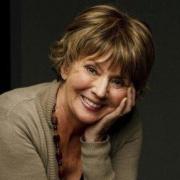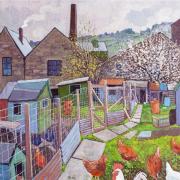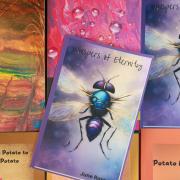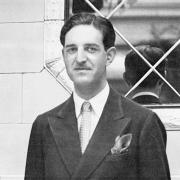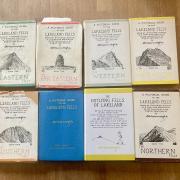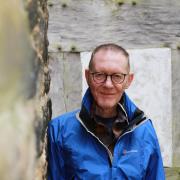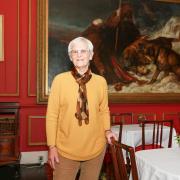Poet Yrsa Daley-Ward was born in Chorley to a Jamaican mother and a Nigerian father. She was brought up by devout Seventh Day Adventist grandparents and worked as a fashion model before moving into poetry. Her latest book, The Terrible, is a memoir about girlhood, femininity, family secrets, addiction, sexuality and mental health. She now lives in New York.

When did you realise you were a poet or a writer?
I was so lucky to have had a mother who taught me to read well at an unbelievably young age. It was so uncommonly entrenched, and this love for language was in my blood before I had time to think about it.
What was it like growing up under your grandparents’ rules, and how did you navigate that atmosphere as a young girl?
Growing up with devout Seventh Day Adventist grandparents seemed normal to me because they had always been in my life. They have always been staunch and God-fearing. Sure, there was an element of feeling restricted, but I am sure most children with strict parenting probably feel that, though to a lesser extent. You may well fell as though something is unfair, but don’t know just how uncommon something is if it is your everyday experience.
You may have clashed with your grandparents’ ideologies, but you write about them and their unwavering faith with deep compassion. What’s your relationship with religion now and has it informed your writing?
There are so many beautiful aspects to religion; the storytelling, the community, the love, the stability, the gorgeous practice of it all. There is a side to it that can make you feel very held, very safe.
I also became conscious though of knowing that I was inclined to do things that went again the teaching and was often nervous about the consequences (i.e. hell!) But religion gives you so much, too. Fellowship, discipline, a ‘family’ in the church, love.
I still find myself singing hymns when I’m cleaning like my grandma, I still follow a strong practice of discipline, peacefulness and patience. There are still certain foods and practices I avoid, though with a much more spiritual and holistic approach than a religious one.
In The Terrible you share experiences – including dating older men who took advantage of you – that echo the #MeToo movement. Why was it important for you to share these stories, and do you consider your work at all connected with a larger conversation about sex and power?
The fact that we are only just starting a larger conversation about sex and power – one of the oldest combinations that there is – feels ludicrous. It’s important to share all kinds of stories. By now most stories are universal, especially those that involve stories of men abusing their positions of power and women gaining their power back, however they choose.
Can you describe The Terrible, how you developed this idea, and what it means to you now?
When I talk about the The Terrible I am speaking to depression, anxiety, addiction and addictive behaviors, old beliefs, low self esteem, passion, loneliness, illness, impatience, being a wild, wild thing, feeling at sea. All of the things. Things aren’t so black and white. Who hasn’t entered The Terrible at some stage in their life. It is not always thoroughly negatively either. It can be altogether Technicolor. It happened naturally, to write about it. The Terrible came right on through and helped me write about itself. I appreciated that.
How have your experiences with racism and the way you deal with these experiences changed?
I make my own work, care about the representation of people of colour and opportunities, education and support or provide them where possible. I care about LGBTQQIA issues and intersectional feminism. You become the change you want to see. There is much in life to love and the world is stunning in new and wonderful ways all the time. It is important to remember this in any experience or exchange with which we are not in alignment. Sure, isms are a constant at the moment. So is ignorance. So is compassion.
What does the act of writing mean to you?
This is ultimate power; to talk about things we are encouraged to feel shameful about. Give me a break, no-one can make you feel like that without your permission. This act is a reminder of this – to be of service. Words are how I love myself and everyone else.
What advice would you give to young people struggling with their own personal Terrible?
Every single thing that you experience, every last one, can be transmuted into something that works in your favour.




